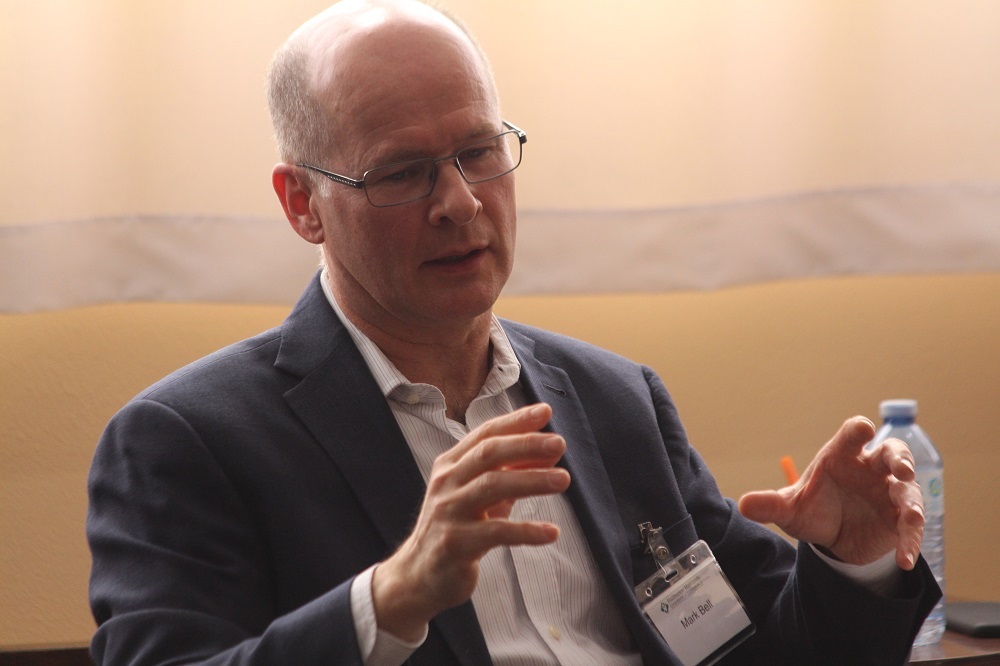While figures published in the 2024 Ontario Economic Report paint a bleak picture for many businesses this year, Haliburton Highlands Chamber of Commerce board chair Mark Bell believes there are several positive takeaways for County entrepreneurs.
The eighth edition of the report was published Feb. 7 by the Ontario Chamber of Commerce, compiling data collected from 1,857 businesses provincewide and providing a snapshot of Ontario’s economic outlook this year.
Of those polled, only 13 per cent said they were confident in the economy – the lowest ever recorded, and down from 16 per cent in 2022 and 29 per cent in 2021. The pessimism is being driven by high cost of living, inflation, housing affordability, and cost of inputs/raw materials, the report notes.
Sectors reporting the least confidence include forestry, fishing, and hunting at three per cent; non-profit at eight per cent; and health care and social assistance at eight per cent.
“On the surface it might look pretty doom and gloom, but when you start getting under the covers, things don’t look that bad. Business confidence is quite low… but there’s a better story here… and that’s the way the economy has adjusted to inflation and high interest rates,” Bell said.
The report notes inflation is expected to stabilize at around 2.9 per cent in 2024, significantly down from its peak of 8.1 per cent in June 2022. Ontario’s GDP is forecasted to grow by 0.4 per cent this year, following a 1.1 per cent growth in 2023. This is all good news, Bell said.
The Muskoka-Kawarthas region, which includes Haliburton County, reported the lowest unemployment rate in the province, expected at 4.5 per cent in 2024. That represents a 1.9 per cent drop relative to prepandemic levels, Bell noted.
“This is likely attributed to the region being home to a tighter labour market, with weaker growth in the working age population relative to other regions in Ontario,” Bell said. “We haven’t had a lot of working-age people moving in, a lot of that is to do with a lack of housing.”
He noted there was growth reported in the construction, health care, social service, recreation, food, and accommodation industries.
Amanda Conn, executive director of the Highlands chamber, said that, as well as housing, there are some other “very real challenges” local businesses need to overcome to encourage further growth.
“The underlying challenge is inflation – everyone’s input costs are going up. Some businesses are struggling to turn a profit, some businesses are a little short on working capital, so have had to borrow money and now are paying higher interest rates,” Conn said. “We still have a real challenge here finding skilled workers.”
Bell noted the top priorities for businesses in Muskoka-Kawarthas include reducing and simplifying business taxes; promoting the area for travel and tourism; supporting the development of affordable housing; investing in workforce development; investing in broadband internet services; addressing healthcare system capacity; and supporting business technology adoption.
He said there was optimism surrounding new legislation introduced by all four County townships allowing for secondary units to be built on most residential properties, and for the development potential of land Dysart et al purchased on the outskirts of Haliburton village on County Road 21 last summer.
Conn said there have been several examples over the past year of Highlands businesses thinking outside the box to make their operations more sustainable. Boshkung Brewing merged with Truss Foodworks last fall to create a new “hospitality hub” in the County, while Minden businesswoman Mary Douglas introduced complimentary mastectomy clinics at Mostly Her women’s boutique, and rebranded the old On The Spot convenience store to a café and vendors market.
“We’re seeing businesses taking good steps, and in some cases bold steps to try and get ahead of the current economic situation… businesses in Haliburton County have had to endure a lot over the past few years, they’ve shown they can adapt and I think many now are approaching the future with optimism,” Bell said, noting 44 per cent remain confident in their own operations.





